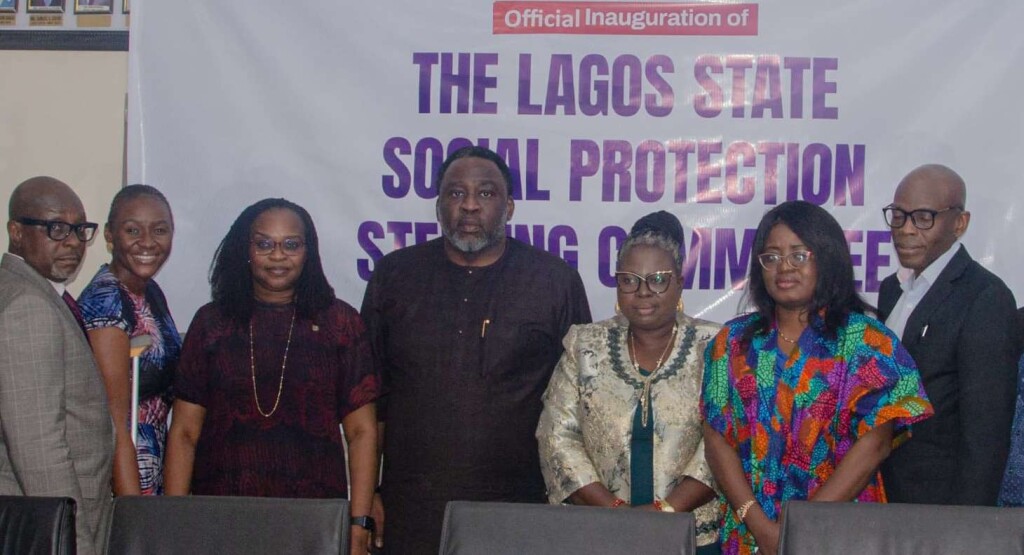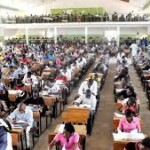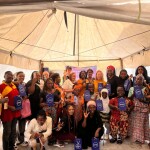The Lagos social protection policy has recorded a lot of motion but little movement among the state’s most vulnerable population
By Gideon Oladimeji
About four years after Lagos adopted its Social Protection Policy, a raft of entities have lined up for its implementation: the Social Protection Council; its coordinating department; the Technical Working Group; and, now, a steering committee.
Only that the state has yet to implement benefits its vulnerable populations can pinpoint among the scores of social interventions it claims to have undertaken. At least the state’s disability community (under JONAPWD) can’t identify them as much of a government policy—but as charity.
Over 35 million persons with disabilities live in Nigeria, according to the National Commission for Persons with Disabilities (NCPWD). The Lagos State Office for Disabilities Affairs (LASODA) has no figure to claim yet—even if it’s as unreliable as the NCPWD’s. (Their respective acts mandate them to have databases, though.) But the Centre for Citizens with Disabilities estimates indicates Lagos at least boasts over two million persons with disabilities.
These estimates, no doubt, imply the size of the disability community among the vulnerable population in Nigeria and Lagos. The numbers even make more sense considering the community’s need for resilience and survival during social and economic busts like the nation undergoes now—and the particular shock to Lagos.
It is, however, taking the state’s supervising Ministry of Economic Planning and Budget so long to figure things out with the Single Social Register. And except it does, the government social protection efforts will remain a mirage—and even amounts to nothing—to the beneficiaries.
But Ope George would, all the same, harp on Gov. Babajide Sanwo-Olu’s good intentions for the vulnerable, and call for method.
“…With over 20 social-functional MDAs, 90 social interventions, and N140bn in budgetary allocations, there is a clear need for coordinated social protection efforts,” the supervising commissioner said July 12.
Those George was addressing in his ministry’s conference room comprised largely government officials. Twenty-six of them got his nod to run yet another coordinating entity, the Social Protection Steering Committee. No member of the vulnerable groups the social protection policy serves made the cut.
It all stems from lack of understanding, according to Lagos JONAPWD chairman Lukman Salami.
“Even though the Ministry of Youth and Social Development commissioners and LASODA are represented there, people from the disability community should also be represented on that committee,” he told ER.
The latest committee is coming on the heels of the Technical Working Group which the Social Protection Coordinating Department (SPCD) established last year. The ministry’s Perm Sec Ibrahim Obajomo said the group would provide, on a timely basis, accurate data to the department—itself a creature of the Social Protection Policy Council. The TWG members came from the same 20 social-functional MDAs which populate the committee George inaugurated and saddled, again, with curating the register.
Following its 2021 launch, the register garnered 2.2 million vulnerable Lagosians into the safety net, of the over 25 million in the state. No disaggregated data to understand the profile of those registered, though. So disability NGOs and organisations of persons with disabilities cannot yet ascertain the percentage of their over two-million-strong Lagos community the state registered as vulnerable.
“The fact that people don’t understand disability issues is now playing out,” Salami said.
The lawyer suspected the state may be registering only poor persons with disabilities as vulnerable—if it’s doing that at all.
“They don’t know that, generally, every person with disability is vulnerable, and they all deserve social protection one way or the other. Even the working class deserves social protection.”
Kemi Adedeji, the director of the department, might not be entirely bereft of the understanding of disability affairs. The last time her team visited LASODA, Adedeji expounded on inclusion and the cores of the state’s social protection policy: Social Insurance, Social Assistance, Social Care, Labour Market Intervention, System Strengthening, and Provision of Complementary Measures.
“Your office is responsible for the over-all wellbeing of PWDs. That’s your focus, and you must ensure your programmes address their specific needs,” she told LASODA’s General Manager Adenike Oyetunde-Lawal in March. She also demanded Adenike’s office provide figures of what the government achieved in social protection.
In an effort to respond, Adenike resorted to the anatomy of the dwarf to explain how severity of disabilities determines the services PWDs need which LASODA must meet.
This seems a role reversal, and more evidence of the poor understanding of disability policymaking.
Disability policy analysts have told ER, time and again, that LASODA, by law, is not a project-executing office; rather, it’s the office that ensures mainstreaming of disability in all the policies and programmes of other MDAs.
Now the ministry is doubling down on tacking on gears—to enable the coordinating apparatus work well. More implementing bodies might join the train soon. But certain aspects of the policy still beg for clarifications. For instance, the policy handlers have not confirmed whether the state has hit its five-million target for the register.
Getting the data right matters to the state’s disability community.
The Lagos State Special People Law that established LASODA provides in its Section 17 that the office set up a database. The state government doesn’t care LASODA hasn’t got one since 2012.
“Having a database will serve a larger and better purpose than having some of the community just captured in the register,” Salami said.
“And when it’s time to accommodate for the social protection largesse, the authorities can defer to the database which have the needs, status, and other information of the PWDs.”







